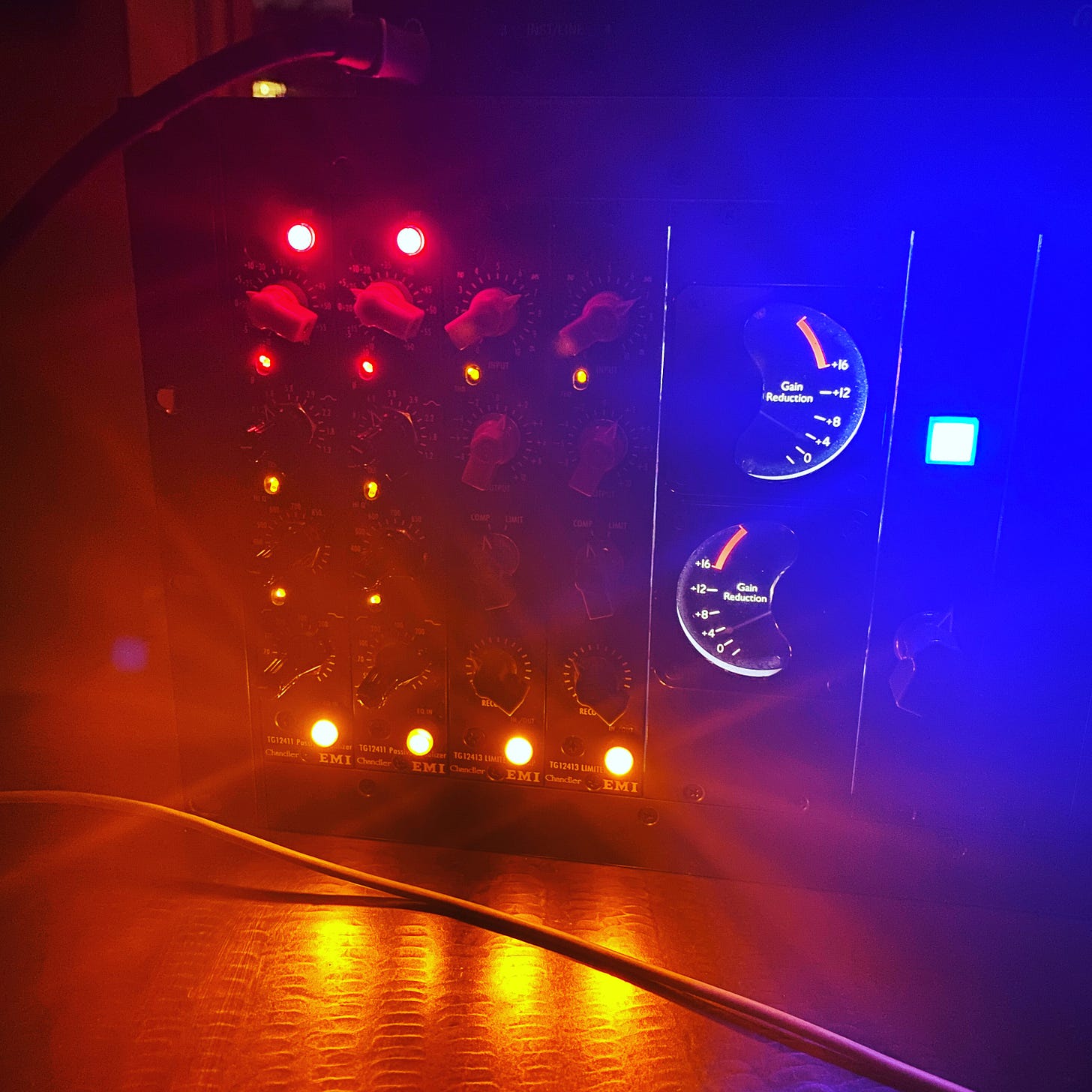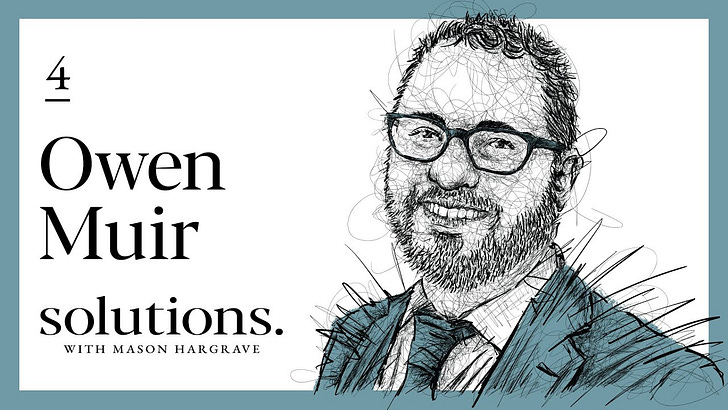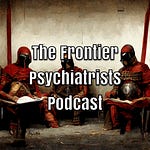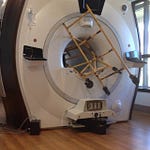This podcast was recorded over the course of the pandemic, and this is the very first episode. A lot of what I saw in real time ended up being prescient in retrospect. I went back and listened to it recently, and decided it was worth sharing with my readers and listeners. I hope you enjoy it, as a historical artifact at least. As a production note, all of it was recorded by me, edited by me, written by me, etc. It was only me around. Because it was a pandemic. So who else was gonna do it? This is the the first of the number of these episodes that I will release in this feed.
Owen Muir: On February 11th, 2020, the World Health Organization announced the official name for the disease-causing virus responsible for the 2019 novel coronavirus outbreak, first identified in Wuhan, China. The new name of this disease is abbreviated as COVID-19.

Owen Muir: So Quinn, what's the best way to avoid getting coronavirus?
Quinn: Coronavirus. You have to get dirty when your hands get dirty.
Owen Muir: You have to get dirty when your hands get dirty. How about what you shouldn't touch with them? Should you touch your face?
Quinn: No.
Owen Muir: Should you touch your nose?
Quinn: No.
Owen Muir: How about your mouth?
Quinn: No!
Carlene MacMillan: So we came up with a name.
Owen Muir: Oh. Well, what is it?
Carlene MacMillan: Well, it's remotely possible.
Owen Muir: Oh, that's the name.
Carlene MacMillan: Yeah. Well, it's remotely possible. The podcast about uncertainty, anxiety, and existential despair.
Owen Muir: Maybe you could say it a little bit slower because it's important to say things slow enough for the audience to keep up.
Carlene MacMillan: Well, it's remotely possible—the podcast is about uncertainty, anxiety, and existential despair.
Owen Muir: So as not to get confused, here are some introductions. My name is Dr. Owen Muir, and I'm your host. After that, you heard Quinn Muir, my four-year-old. Teaching us how to say no to touching different parts of your face. Subsequently, Carlene MacMillan, MD, told us the name of the show.
Owen Muir: You're going to hear a lot of other teammates on the show coming up, and I'll introduce them as they come along. In COVID-19, CO stands for Corona, VI stands for virus, and D stands, unsurprisingly, for disease.
Michelle Bernabe, R.N.: It's kinda eerie. Because it's a beautiful day in New York City.
Owen Muir: Thanks, Michelle. Next up, you will meet RJ, our awesome IT manager.
R.J. Smith: I got on the subway and realized I hadn't been there in three weeks. And I thought how lucky I was not to get infected.
Tracy: I'm Tracy. I'm, I think I'm reacting normally. Like, the right amount of anxiety. , I'm not so much concerned about me getting it. Like, if I get it, I'll probably be fine.
Owen Muir: This is Tracy. She's one of our Winnicott coaches and TMS technicians.
Owen Muir: Jacqueline is also a TMS technician and Winnicott coach.
Jacqueline Caso MSW: honestly, I haven't done anything different. , I'm not super concerned; more concerned about the panic than the virus itself. I think people a little probably going to freak out.
Owen Muir: There are many types of human coronaviruses. Including some that commonly cause mild upper respiratory infections, COVID 19 however, is a new disease caused by a novel coronavirus that has not been previously seen in humans. We're a mental health practice. But we realized something big was happening.
Owen Muir: Next up, I talked to Michelle Bernabe, RN, my co-host, about mentalizing:
“So you see, we wanted to mentalize and tried to define that. Do you want to do that?
Michelle Bernabe, R.N.: Define mentalization?
Owen Muir: Yeah.
Michelle Bernabe, R.N.: I want to define mindfulness of self and others.
Owen Muir: Mindfulness for the both of us.
Michelle Bernabe, R.N.: Mindfulness for the both of us. Okay, so here I am on my second hour of Twitter. Scrolling, scrolling, reading about all the exponential predictions of how America's healthcare system will be completely burned and then collapse because there are not enough beds. And I have convinced myself I will... Be without a bed needing a bed in two weeks’ time.
Owen Muir: People in the United States might be worried or anxious. Friends or relatives living or visiting areas where COVID-19 is spreading may become infected. Some people are worried about the disease. Fear and anxiety can lead to social stigma, for example, towards Chinese or other Asian Americans or people who were in quarantine.
Owen Muir: That is where we come in as mental health professionals.
Michelle Bernabe, R.N.: Well, I mean, how do you think they're feeling?
R.J. Smith: Scared?
Michelle Bernabe, R.N.: Scared about what?
R.J. Smith: Being sick.
Michelle Bernabe, R.N.: Right now, isn't it just so much more than being sick?
R.J. Smith: No, I don't know. To me, it's just being sick.
Michelle Bernabe, R.N.: Really?
R.J. Smith: Yeah, and weaponizing the illness.
Owen Muir: As we prepared to do this show, I talked to a lot of my colleagues about their fears.
Owen Muir: One of our social workers, Erica, has asthma.
Erica Zajac, LSW: I'm concerned about suffering. If I get sick, my lung functioning is already not optimal. Dying is a part of life. The dying part is not the problem because then my brain, which goes 5 million miles an hour, will be thinking constantly while I'm there that I'm suffering.
Owen Muir: Stigma hurts everyone by creating more fear or anger towards ordinary people instead of the disease that is causing the problem. In the days leading up to making this show, we had a lot of conversations. Started out jokey, and in retrospect, it sounds tone-deaf.
R.J. Smith: Yeah, and I knew for sure that I had...
Michelle Bernabe, R.N.: Coronavirus.
Owen Muir: To be perfectly clear, RJ doesn't have coronavirus.
R.J. Smith: Yeah.
Michelle Bernabe, R.N.: And how do you feel this morning?
R.J. Smith: Like, I have coronavirus, but I probably don't. I probably already had it.
Owen Muir: Sometimes it's safer to feel like you've already got the disease in a pandemic.
Michelle Bernabe, R.N.: Yeah, that's what we were getting to.
R.J. Smith: So I'm immune now.
Michelle Bernabe, R.N.: I got off track. Well, you know, in my thorough research on Twitter...
Owen Muir: It's unclear if prior exposure to COVID-19 provides inoculation against future infection.
Owen Muir: It was the case with both MERS and SARS, but we don't have the data on COVID-19.
R.J. Smith: My mom would do this thing where she would be like, okay, now that you're sick, we need to sanitize everything in the house cause you'll get sick again. And I'll say, Mom, that's not how immunology works.
R.J. Smith: I'm not going to get sick from something I've already had. She is very insistent that that was a lie made up by Who knows the overseers, I guess
Michelle Bernabe, R.N.: by the Illuminati.
R.J. Smith: Yes, the medical Illuminati, which is a very real thing
Michelle Bernabe, R.N.: I know
R.J. Smith: Jay z's a part of it.
Michelle Bernabe, R.N.: I can't tell you how I know.
R.J. Smith: Oh, Tell me more. Oh, I guess you can’t.
Owen Muir: Carlene MacMillan chimes in about the value of social distancing and how it's different from quarantine
Carlene MacMillan: You asked me to explain social distancing. I'm sitting next to you, very close. It's not social distancing.
Owen Muir: It's not social distancing. Uh, you're probably already exposed to me and me to you.
Carlene MacMillan: This is true, which is why I've taken this calculated risk.
Owen Muir: Okay. So, what are we doing to help, not just... People's fear and anxiety about COVID-19 help slow down the spread.
Carlene MacMillan: If you told me a week ago that we'd be doing something called social distancing, I would have said that was totally opposite to what we do as psychiatrists. However, times have changed. Now I understand social distancing to mean that we're taking steps to slow the spread of COVID-19.
Owen Muir: Like, like what?
Carlene MacMillan: So it means... If there is something we can do while maintaining a safe social distance, we're going to do it.
Owen Muir: According to the CDC, that's about six feet.
Carlene MacMillan: That's right. It's about Six feet.
Owen Muir: for us to make it six feet or more, is there a way we can do that?
Owen Muir: Sure. So that's where HIPAA-compliant Telehealth platforms come in, like Zoom. So over the past few days, we've switched over everything Telehealth. We can't do that for services people need to come into the office for, like TMS. But for everything else, we can do it over the computer. We can make it work, and that's what we've been doing. I was talking to my psychiatrist the other day, and he pointed out a really interesting thing that people are not talking about: the difference between social distancing and quarantining and why social distancing is so important.
The deal is that if you're around someone they have COVID-19, you are then going to be quarantined. So if we ran a group therapy session and one of those group patients, or even a group leader, had COVID-19, then the whole group would be down for the count, essentially, you know, locked in their house for two weeks, or whatever the CDC recommends.
Owen Muir: However, if we make calculated choices by doing social distancing, we can minimize the chance of that happening, which means we'll have more freedom, more ability to make choices around our movements than if we do whatever we want. With COVID-19, we can see change coming. Come with us and figure out how we will handle this thing together.
Michelle Bernabe, R.N., featured above, writes Moral Health .















